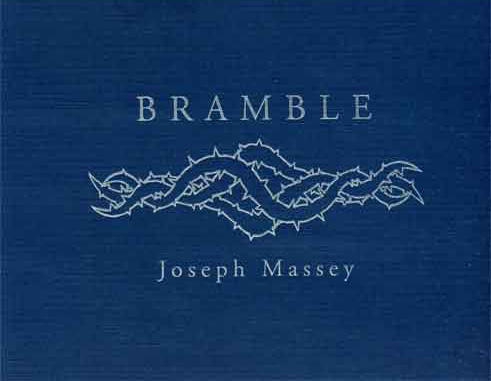
One great consequence of this weblog is that people send me books & magazines that they want me to see. Some are just so-so, a few are real cringers, but I’m struck at how high the overall quality is – many are much more than “merely competent.” People who decide after all to tackle this most difficult (& deeply underappreciated) art form really do, to appropriate a sports phrase, put themselves out there, leaving everything on the page. That is one reason why I’m such an optimist about poetry, and why I can say with confidence that we have more good poets active right now than ever before, especially if I frame that clearly, say, for example, within the United States. On top of all this a few books just jump out at me & really rock.
I started this week off by turning to a book by a young poet, Laura Sims, whose poetry I first read as a direct result of doing the blog. Her book is flat out terrific. I’m happy to finish it in a parallel fashion, turning to another great new book by another poet whose work I first saw as a direct result of blogging. Joseph Massey’s Bramble is not only a joy to read – I’ve already done so more than once – but it’s unusual & remarkable in several ways. The most important of these is the writing.
Bramble is a collection of some four dozen lunes, a haiku variant that first came to light in a book entitled Lunes written by Robert Kelly, and published, together with Jerome Rothenberg’s Sightings, by Jerry’s Hawk’s Well Press back in 1964. Lunes are so called because their format – most often three lines with five syllables, three syllables, and finally five syllables again – suggest that the right-hand margin will carry the appearance of an open parenthesis – ( – mimicking the shape of a waning moon. One doesn’t think of Kelly as a miniaturist, and it’s not surprising that the form has carried on most often in the hands of others, such as Jack Collom, who categorizes the lune as one of a broader number of “teeny-weenies” that abound in the poem..
Massey, however, is a miniaturist, as technically fine & intellectually sharp as any we’ve got this side of Bob Grenier. Like Grenier, Massey really understands how small form poetry magnifies all that it touches:
a snail’s vacated
shell lies next
to a wad of gum
This poem partakes not only of daily observation, close attention to the actual, but one could point also to its historic relationship both to haiku’s Zen roots and an American art aesthetic visible in the Ash Can school of painting & the Objectivist poets. This is an interesting double dynamic that pops up throughout the book, most explicitly in a poem entitled, literally, “in Cid’s voice”:
you think there should be
more, but this
this is all there is
An insistence that shows up elsewhere in the book in a text that audibly harks back to Robert Creeley’s work (& indeed to the Creeley most directly impacted by the short poems of Louis Zukofsky):
when you say it, say
it – what’s there
to be said – what’s here
Massey has been known to bridle at my occasional obsessiveness over literary genealogy, and yet these poems – the book starts off with an epigram from Kelly – form an act of allegiance as willful, even devout, as anything I’ve seen in ages. Yet Massey is not, repeat not, a retro-ist, content with demonstrating his ability to replicate the great dance moves of the past. There is one sequence in the book of four poems that each begin with the same line, and yet move in very different directions:
remembering, as
a snail-streaked
calla lily sways
*
remembering, as
the tarp whips
against the fence post
*
remembering, as
rain slants in-
to my coffee cup
*
remembering, as
traffic takes
another long breath
There are instances here – as in the last line of that second poem in the sequence above – where the constraints of the form strike me as a limit: I very much want to begin that last line with the word up even tho it would “violate” the genre. Yet what really hits me here is how many different ways that first line – a hint of being not in the present, in contrast with the Zen “be here now” assertiveness implicit in the form – can send a poem. I don’t think it’s possible, frankly, to craft a better poem than that last one.
Each time I’ve gone through Bramble I’ve emerged with different favorites a lot of this has to do with Massey being fully dedicated to the particular, and also with his excellent ear. At 250 copies, Bramble is an unusually large run for a fine press printing, although it is Massey’s largest edition to date, following the 50 copies of Minima St. & 200 for Eureka Slough. At 52 pages, with sewn binding, Bramble is a gorgeous book object, right up there with work from presses like Chax & Cuneiform. What we really need, tho, is a big book – 100-plus pages – with a press run in four digits and halfway decent distribution (which, for poetry, is very very good). Joseph Massey is writing some of the best work of our time, and it’s accessible to boot. He’s a post-avant even Ted Kooser should be able to love.





